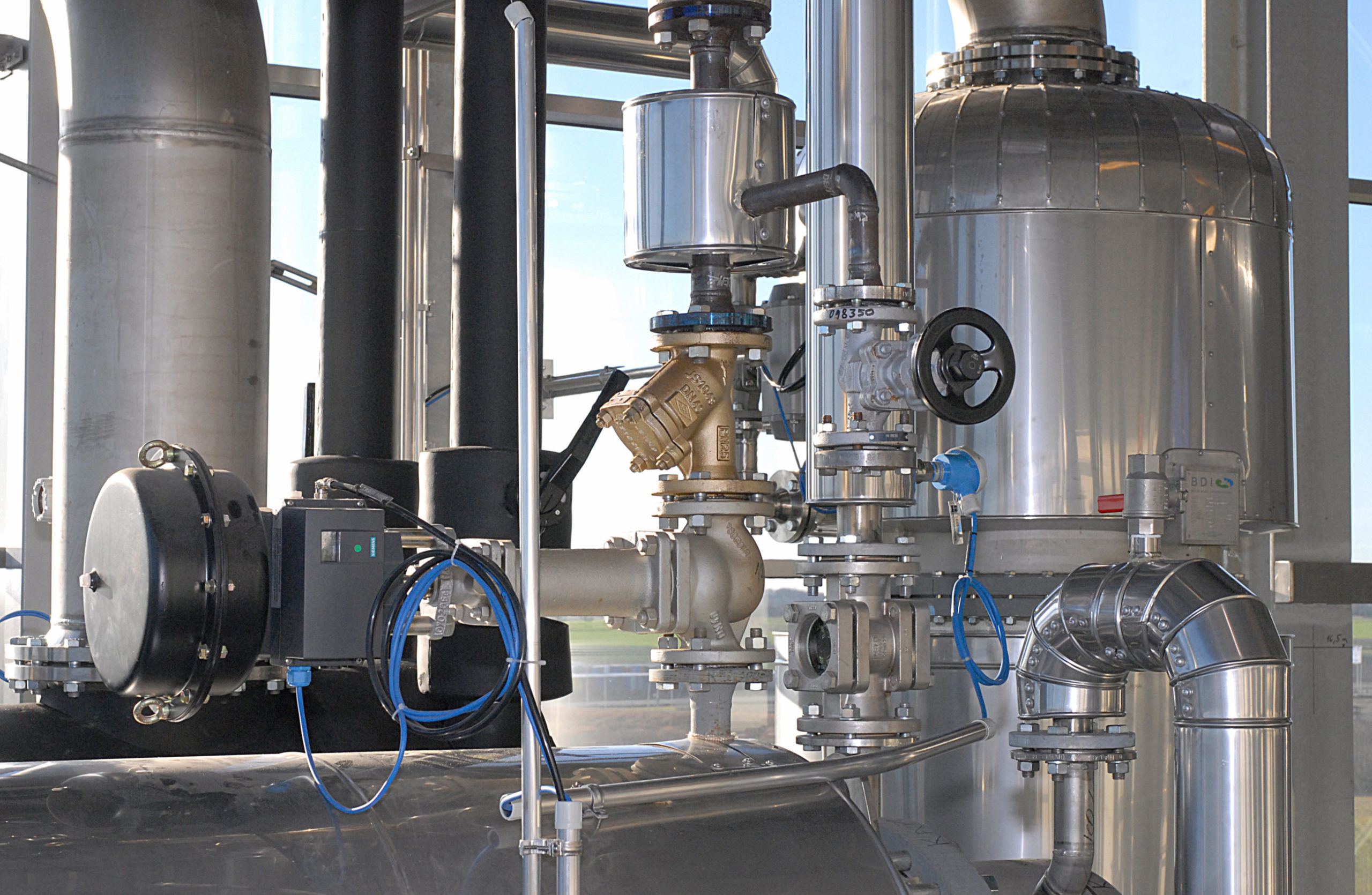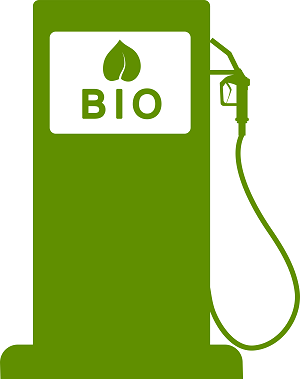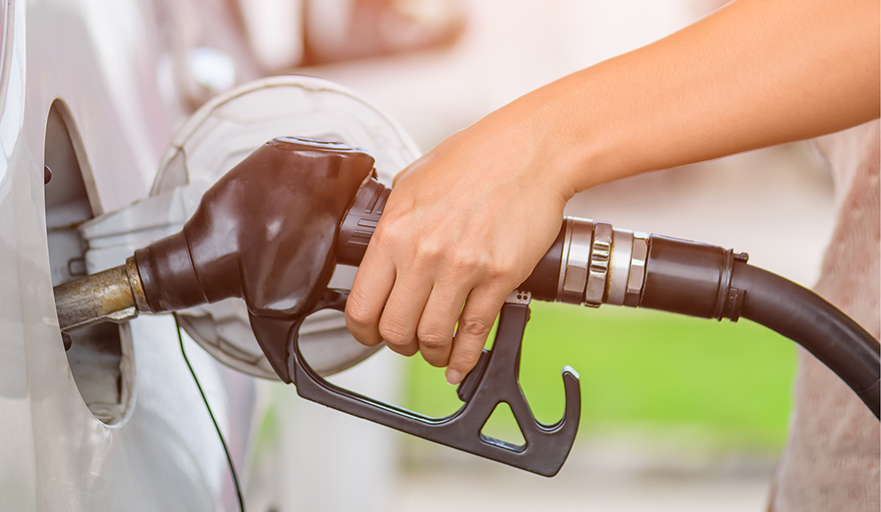
Modern Technology Ensures Top Quality Products
The use of by-products for the production of biodiesel presents a number of challenges as opposed to the use of pure plant oils.
The content of free fatty acids is significantly higher, which may lead to processing problems if these are not converted into fatty acid methyl esters before the conversion of the fatty substances. This means that the conversion process involves two stages: the first comprises an acid pre-estering using sulphuric acid as a catalyst and the second the re-estering of the fatty acids under alkaline conditions with the addition of an alkaline catalyst, typically potassium or sodium hydroxide.
The use of animal fats also requires an improved final refining process since it contains a number of micro-components that may present a sediment problem unless they are removed. The biodiesel is therefore subjected to a final distillation process where fatty acid methyl esters are fractionated into light and heavy fractions. This stage also ensures a low sulphur content in the final biodiesel (<10 ppm). In addition to biodiesel, the production process results in glycerine and potassium sulphate.
The processing plant was supplied by BDI, an Austrian company with a great deal of experience when it comes to establishing biodiesel production plants based on animal fats. SARIA’s ownership of Daka Denmark A/S and thus of Daka ecoMotion, also adds valuable expertise, since the company has constructed and operates several biodiesel plants in Germany.
Daka ecoMotion has also tested other catalysts in a test plant. These may provide certain advantages in processing terms, but for time reasons Daka ecoMotion has chosen to base its full-scale plant on tried and tested technology. Improvements may subsequently be incorporated as time passes.

Which Ingredients are Used in the Production?
Research & Development

Environment

Daka ecoMotion’s production plant has a separate Chapter 5 approval, which ensures that its impact on the surrounding environment is extremely limited. The actual biodiesel production process takes place in a closed system, and emissions are extremely limited. Biodiesel is also characterised by its high biodegradability as opposed to that of fossil diesel.
Read more about our biodiesel. here

Environment and safety are given high priority at Daka Denmark A/S, and in accordance with the Group’s mission we consider it our duty to preserve natural resources and protect the environment. Daka works continuously to improve health and safety at the factories, all of which, of course, are environmentally certified. Read more about Daka’s environmental profile on the website of Daka Denmark A/S.
Read more about biodiesel here.
You would like to know more?
Then please contact us. We look forward to your feedback.
E-Mail: ecomotion@daka.dk | Phone: +45 7674 5111

